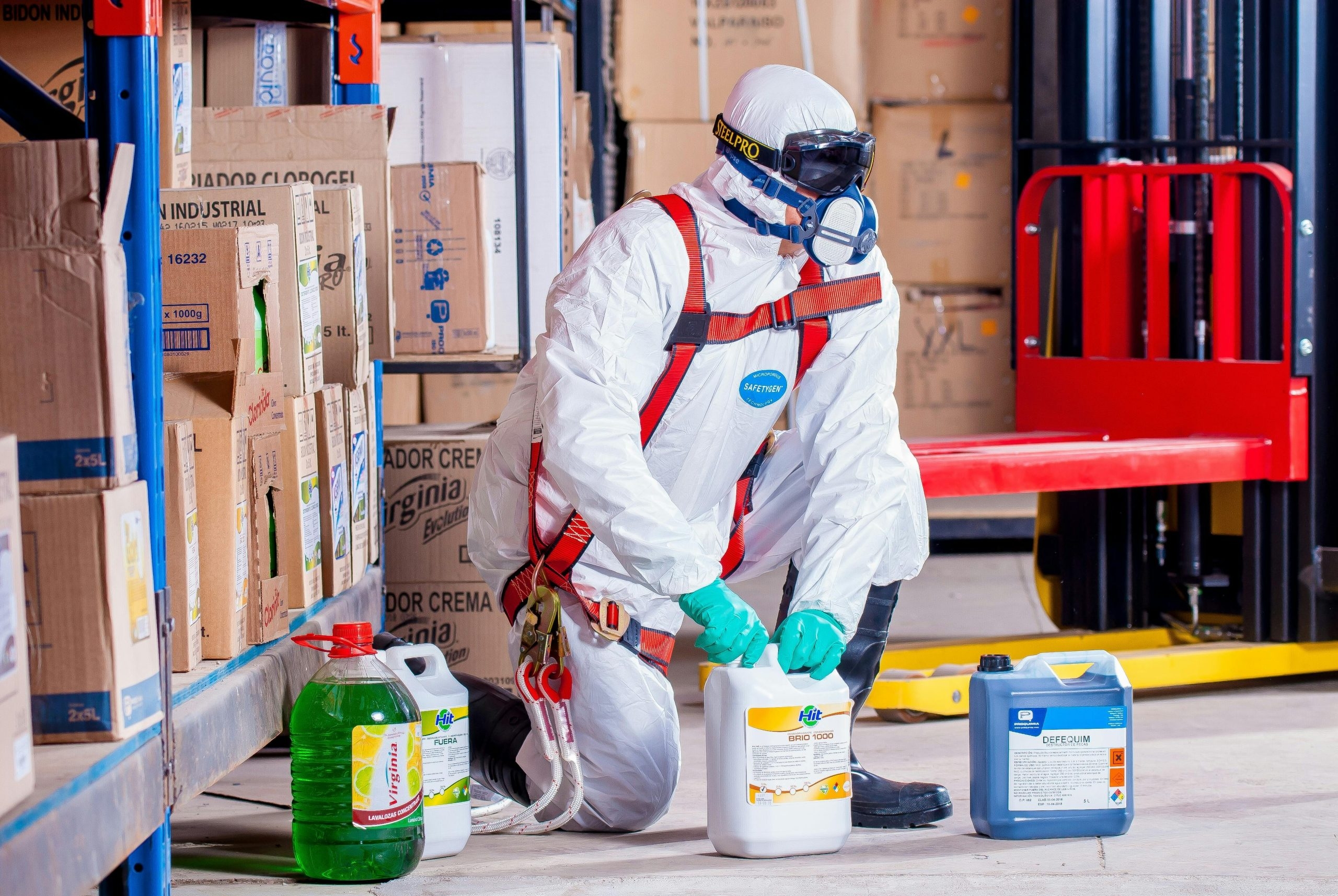There are many valid reasons for a business to use temporary staff hired from an agency such as seasonal workload increase, maternity cover, long term absence cover, as well as temporary vacancy cover with the possibility of a permanent contract, should the person suit the role as a permanent member of the team.
In my experience, many companies do not understand their Health & Safety responsibilities to a temporary worker and leave themselves open to liability in the event of an incident or accident.
Hiring the Right Person from an Agency
A detailed job description should be provided to the agency to allow them to check and assess the suitability of the proposed worker.
Training and Qualifications Using an Agency Worker
Never rely on the agency to state that training and qualifications are in date and sufficient. You have a responsibility to check and confirm training just as you would an employee. A good example is a ‘qualified fork lift truck’ person. Things to consider are:
- Was it an accredited course such as RTITB or in house, ‘in house’ could mean anything – it may have been a colleague ‘letting them have a go’ for a couple of hours. Also even with an accredited course, how long ago did they do it? Even if it is technically ‘in date’ – when was the last time they used a fork lift truck, how much experience have they got? They may not have driven a truck for 2 years and still have an ‘in date’ certificate.
Our advice would always be to create a quick in house assessment, say 30 minutes, to record competency. Also remember driving a fork lift truck can involve many operations, the worker may have a full certificate but have only ever done racking work in a warehouse, and never loaded high or never loaded a vehicle.
Health and Safety Induction for Agency Workers
This is the biggest area where many businesses make mistakes. Production will want the worker being productive as soon as they arrive, and I have seen on many occasions managers say “we won’t bother with a full induction as they are only here for a week” Big mistake, but this also depends on the content and format of you induction. If it includes things like healthcare benefits, pension benefits which would not apply to an agency worker, we would suggest a full H&S induction for all staff, and then a second section concerning anything that would apply to employees only, which you would not necessarily present to an agency worker, especially if they are a short term placement. If the agency worker did later become permanent or continue working with you for a period in excess of 12 weeks, you would then present the second section of the induction.
What is an Agency Worker Entitled to from Day One?
Agency workers can have two types of rights depending on how long they have been working with you. These rights can come into force from day one, as well as week twelve.
Stage 1 rights come into place on the first day ,so you must fulfil them on day one of their first assignment. These include access to your facilities, which can include kitchen, canteen, crèche, parking and gym, if employees with the same role are allowed access to them. If employees at the same hierarchical level as agency workers are not allowed certain facilities, then agency workers will not need to have access to them either.
What Rights are Agency Workers also Entitled to?
- Deductions from wages cannot be made unlawfully.
- Agency workers are protected under whistleblowing legislation.
- Statutory Sick Pay is likely to be payable, where eligible.
- You cannot discriminate against them on the basis of sex, race, religion or orientation according to the Equality Act 2010.
- They have the right to work in a workplace that is safe; including adherence to the Working Time Regulations and rest breaks.
- You must also give temporary workers information about any permanent vacancies that become available. This does not mean you have to accept their application and go to interview; it just means that you should make sure that this information is equally available to workers and permanent employees.
What Right do Agency Worker Have at the 12 Week Point?
Once an agency worker has been working with you for 12 weeks, another set of rights comes into play according to the Agency Worker Regulations 2010. These rights come in as long as this worker has been with you consecutively for 12 weeks in the same role.
They include:
- Equal pay.
- Working time (e.g., shift patterns).
- Extra considerations regarding night work, as compared to permanent employees.
- Enrolment in the company pension scheme on the same T&C’s
- Paid annual leave.
- This means that they will receive the same basic working conditions as those of your permanent employees. Agency workers should receive the basic 5.6 weeks of statutory holiday paid leave that your employees also have. This could be dealt with by the agency obviously and costs going forward agreed in your business contract with them.
- Paid time off for antenatal appointments for pregnant workers (and entitlement to alternative employment should current role become unsuitable).
Equal pay includes:
- Basic pay; the annual salary that is paid to your employees.
- Overtime pay.
- Unsocial hours pay.
- Annual leave pay.
- Bonuses or commission payments, should they be attributable to performance
- Vouchers and/or stamps that your employees receive that do not replace their salary, such as lunch or childcare vouchers.
- Access to same benefits and reward schemes as comparable employees.
Personal Protective Equipment for Agency Workers
Changes to the Personal Protective Equipment at Work Regulations 1992 means that all businesses must ensure that all workers, including PAYE agency workers, engaged by them are provided with suitable PPE, free of charge.
These rule changes are likely to pose practical difficulties for agencies when supplying PAYE temps or employees. The obligation to ensure that PPE is provided rests with the agency, rather than the party for whom the work is carried out. However, practically, in most cases it will be the hirer client, rather than the agency, who will assess risk, determine whether PPE is required, monitor its use etc. In many cases this will not pose a problem as many hirers will, in practice, provide temporary agency workers with the same access to PPE as their employees, but this may not always be the case, for example, where hirers have historically expected agency workers to provide their own PPE.
Agencies will no longer be able to require that PAYE temps provide their own PPE for assignments. The agency, as the party engaging the worker, will have a statutory duty to ensure that this is provided either by themselves or another party. This will be the case even for very short-term assignments. Some hirers may therefore expect that the agency should bear the cost of providing PPE for their temporary workers. Responsibility for PPE is therefore something that you should address when entering into contracts with agencies.
Boots are an expensive item for example and while most agency workers will have their own, the last thing you want is a worker turning up on their first day with no safety boots. As mentioned above this is why you should always ensure clarity is in place around the agency worker having such PPE. If then this means the agency has to supply or reimburse the worker is up to them, but this must be clear, as the agency may charge a small hourly premium to cover the cost.
Respiratory Protective Equipment (RPE) for Agency Workers
RPE is another item of PPE that for obvious reasons is considered as ‘personal’ and to be used by only one individual. This is not a problem if your task risk assessment states a disposable type mask but remember the worker must be face fit tested and, where applicable, clean shaven. If the task dictates a much more expensive item of RPE such as a full face mask or they have a beard, we would suggest you use the air fed units with a separate hood which means the hood can be supplied to an individual at relatively low cost as opposed to a full face mask with filters which can cost several hundred pounds.
If you need advice on temporary workers within your organisation please call us on 033 33 215 005 or email websiteenquiries@wirehouse-es.com






